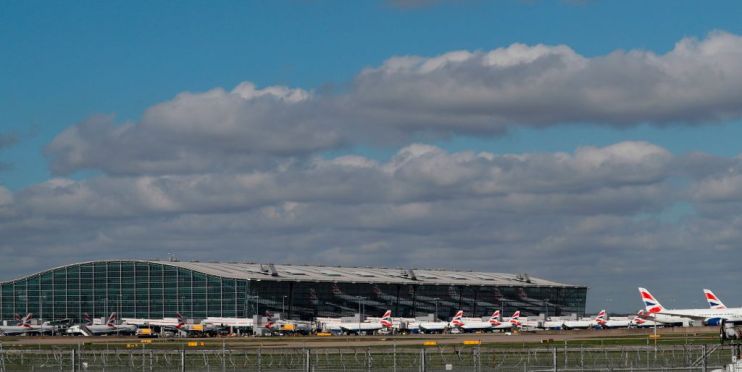Airline shares have started to slide – is this the end of the great rebound?

Airline shares have flown high this year after record demand for travel swept across the sector over summer.
Consumers pent-up desire to head abroad after years of Covid travel restrictions – the key driver of the summer boom – has shown little signs of slowing as yet.
Easyjet reinstated its dividend earlier this month and announced a bumper order for 147 new aircraft, citing soaring demand. Chief executive Johan Lundgren hailed the bullish update as he eyed a target of £1bn in annual profit by 2029.
But the news fell flat with investors and shares in the budget carrier fell over five per cent over the course of the following day.
The tepid response points to the cracks emerging in airlines’ much-hyped resurgence. Take a look at the share price of low-cost carriers over the last month; the likes of Easyjet, Wizz Air and Jet2 are all down, with Wizz falling nearly 20 per cent.
The IAG conglomerate, which owns long-haul specialists British Airways and Virgin Atlantic, has also fallen nearly 3 per cent over the last month. This is despite a record set of results last week.
Liberum gave a cautious review of the IAG in a note this week, with spiking jet fuel costs and supply chain issues at manufacturers Boeing and Airbus well on the mind of investors.
Russ Mould, investment director at AJ Bell, said carriers gains had been “eroded by share price falls over the summer.”
Mould noted a “renewed advance in oil price as one possible reason,” as well as “hefty pay increases for staff.”
Conflict in the Middle East after Hamas’s attack on Israel caused global oil price to spike in October, bumping up the cost of kerosene-based jet fuels.
Analysts have also flagged concerns over rising aircraft leasing costs, as sky-high demand collides with supply chain delays at Boeing and Airbus – prompting airlines to increasingly rely on renting aircraft from leasing companies.
Mould cautioned that demand for overseas trips may slowdown in the coming months.
“There remains the risk that this year’s surge in bookings is a response to three years of enforced staycations and therefore unsustainable, especially as consumers are feeling the heat from higher mortgage, credit card, food and other bills, thanks to inflation and higher interest rates,” he said.
“These are all issues to be watched, especially as airlines’ historically volatile profit profile means that many investors treat them as stocks to trade, and rent, rather than buy-and-hold and own,” he added.